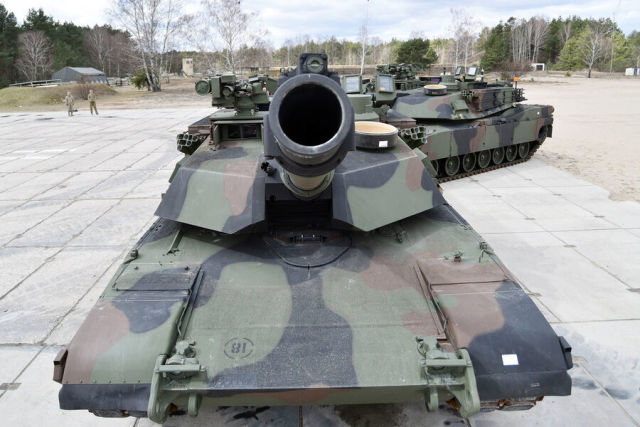FT: Ukraine may face problems with Abrams tanks due to complex logistical support The United States promised to transfer 31 Abrams tanks to Ukraine.
However, according to the Financial Times, the APU is facing big problems due to the complexity of the operation of these machines. Abrams has capricious and voracious engines, and a giant supply system is needed for maintenance, which is located overseas. Western military experts do not rule out that the supply of Abrams will bring Kiev more problems than opportunities.
Complex maintenance and logistical support of American Abrams tanks make these vehicles not very suitable for foreign armies, including the Ukrainian one. This conclusion was reached by military experts interviewed by the Financial Times newspaper.
One of the main problems of Abrams is its extremely capricious and "voracious" gas turbine engine.
At the same time, the military expert does not deny the combat qualities of Abrams, but emphasizes that its use in combat actually requires a logistics network covering the whole world.
According to the FT, Nagle's experience is not unique: for several decades, armored units of the US Army complained about the "long logistical tail" necessary to maintain Abrams tanks in combat readiness. The newspaper states that Kiev needs "just a well-functioning weapon", and Abrams are not quite suitable for the APU.
The situation with complex logistics and maintenance of Abrams is an example of the work of the American defense procurement system, writes FT. The Pentagon is constantly overloading its military platforms with modern technologies, which significantly complicates the operation of equipment.
As an example, the publication cites the construction of a fleet of American Zumwalt-class destroyers in 1998. Initially, the US Navy planned to purchase 32 ships for $ 1 billion each. However, Navy procurement officials added so many experimental and simply untested systems to the requirements that 20 years later the US Navy received only three destroyers for $7.5 billion each.
According to Josh Kirshner, director of the consulting firm Beacon Global Strategies, the Pentagon has a tendency to purchase the most advanced defense systems, while other armies simply need reliable working equipment.
The problem of technologically too complex weapons and the associated cost overruns has recently attracted the attention of the US Accounting Chamber. The supervisory authority has chastised the Pentagon for buying weapons systems that are too expensive and too complex to deploy and operate.
Returning to the tanks, the newspaper notes that the Abrams gas turbine engine is similar to a jet engine. And the diesel engine of German Leopard tanks is more like a regular truck engine. For their maintenance, completely different equipment is needed, repair crews must undergo special training, including learning how to work with unique high-tech gadgets, the authors of the article claim.
"The ability to repair a Volkswagen Beetle does not necessarily mean that you know how to repair an F1 racing car," Stephen Biddle, senior researcher on defense policy at the Council on Foreign Relations, drew an analogy.
According to him, the Abrams engines allow you to get a very large acceleration compared to the same Leopard. However, they consume a lot of fuel and are generally "finicky".
In addition to careful maintenance, American tanks also need a constant supply of a large number of spare parts. And since the supply chain is located in the USA, it will be much more difficult for Ukraine to get the necessary components and assemblies than for Leopard.
In addition, according to the newspaper, if German tanks are already in service with a significant number of European countries and are generally available, then the United States will only have to build Abrams for Kiev. Their manufacturer, General Dynamics from Ohio, produces about 12 tanks per month. But it is unknown whether the company will give priority to those machines that are planned to be sent to Ukraine.
Kirshner from Beacon Global Strategies concluded that Abrams put the Ukrainian army at greater risk than if the APU used only German Leopard.
Mikhail Kotlyar

